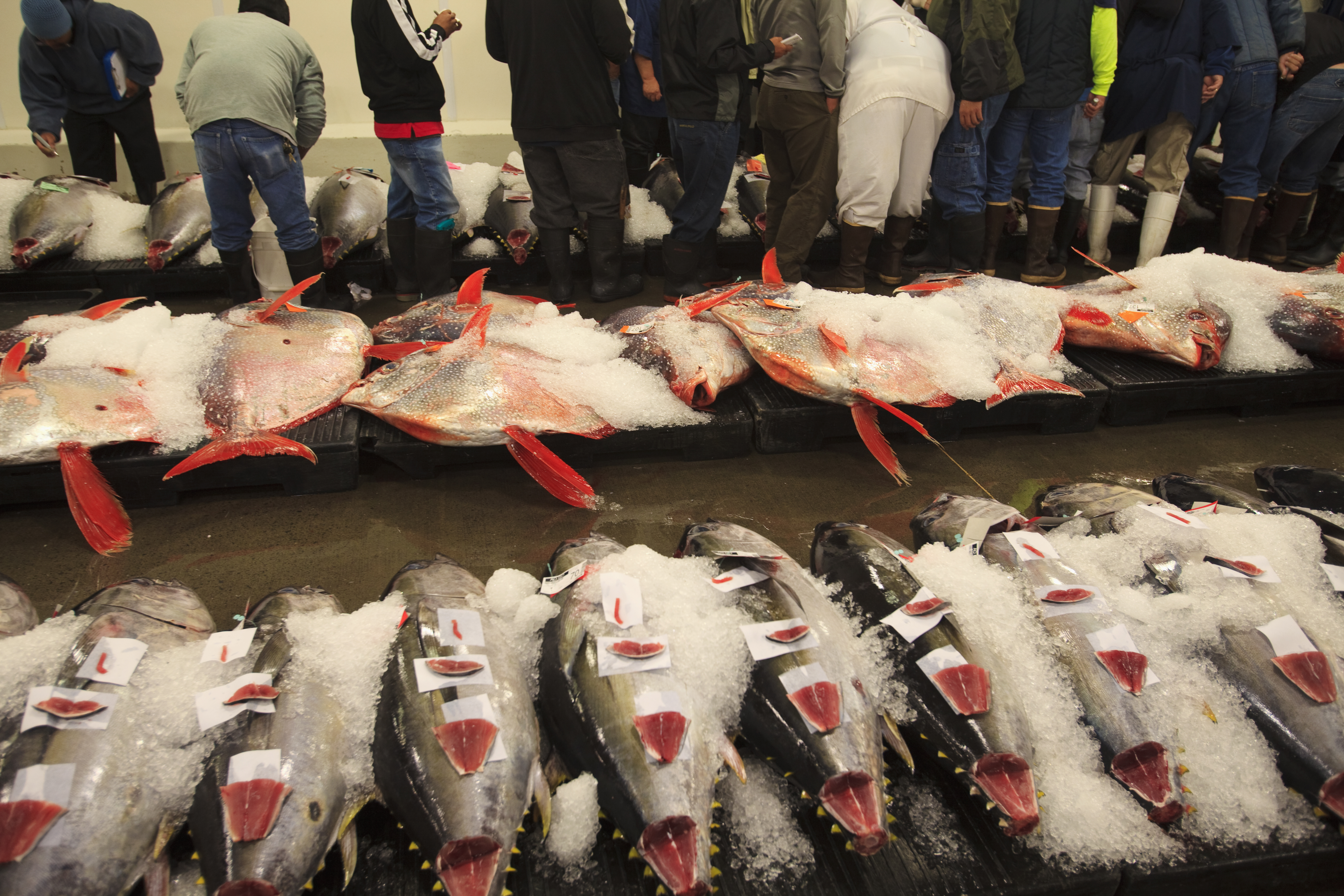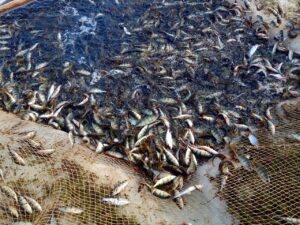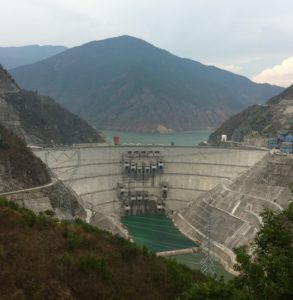Problem
The SIMP program requires seafood importers to report specific information to the U.S. government so that it can identify IUU catch before it enters the U.S. market. Importers must include information about what, where, and when fish was caught, by whom, what type of gear was used, and tracking the seafood throughout the supply chain until it enters U.S. commerce. NOAA launched the Seafood Import Monitoring Program in 2016; mandatory reporting began in 2018 for 11 at-risk wild caught species, and 2 aquaculture species (abalone and shrimp) were added in 2019. Three years into operation, however, challenges to realizing SIMP’s full potential have come to light: there are too few dedicated staff overseeing and managing this complex program, which includes conducting seafood audits, enforcement, and conducting adequate training both domestically and overseas.
Exporters and seafood exporting states have presented a myriad of compliance challenges. The program is also saddled with data collection tools ill-suited for auditing and enforcement, and is too often forced to rely on easily-falsified paper catch documentation.
Notably, other major seafood importing nations, including the European Union and Japan, are also setting up and expanding their own market-based systems to combat IUU fishing. The U.S. government has an opportunity to lead this fight and drive global collaboration by strengthening SIMP, improving its implementation, and preparing for its expansion to additional species.
Background
The wide shadow cast by IUU fishing
Illegal, unreported, and unregulated (IUU) fishing occurs around the world as part of the complex and opaque global seafood industry. IUU fishing is largely clandestine, making it difficult to measure the full extent of its detrimental impacts on global fish stocks. However, the United Nations Food and Agricultural Organization (UNFAO) estimates that 90 percent of the global fish stocks are fully exploited, overfished, or depleted, causing alarm for over three billion people around the world who rely on fish as a primary source of protein.
In 2018, the Stimson Center released a report, Casting a Wider Net: The Security Implications of Illegal, Unreported, and Unregulated Fishing, which detailed how IUU fishing is not only an environmental problem that drains coastal states of natural resources, it also jeopardize the food security and economic security of states and regions who rely on sustainable fisheries for their livelihoods. IUU fishing competes with and undermines legally harvested fish, creating an unlevel playing field for fishermen and women who comply with fisheries management rules. IUU fishing also deprives coastal states of important tax revenue that can be reinvested into fisheries management. Further, those engaging in IUU fishing have been linked to other transnational criminal activities, from the trafficking of narcotics, weapons, and humans to money laundering and piracy. IUU fishing and its specter of corruption is driving civil society unrest in West Africa, and clashes between illegal fishing boats and coast guard or navy vessels in the South China Sea have raised regional tensions.
Launching SIMP
In 2014, the Obama Administration recognized that as a major seafood importer, the U.S. had a responsibility to take steps to combat IUU fishing and seafood fraud. Numerous instances were documented of IUU fish entering U.S. markets, as well as where less expensive species were being passed off as more expensive fish to unsuspecting consumers, aquaculture species were often registered as wild-caught, mislabeling was used to skirt regulations and avoid fees, and illegally-caught fish was found co-mingled with legal catch and laundered into the supply chain. In response, the Obama Administration created the IUU Seafood Fraud Task Force. Building off its Action Plan in 2015, NOAA’s National Marine Fisheries Service (NMFS) was charged with developing the SIMP program, and the SIMP Rule was finalized in 2016. NOAA sought to strike a balance that minimized the burdens of compliance for the seafood industry and importers of record, while requiring the disclosure of enough information to identify illegal or mislabeled seafood before it entered the U.S. market.
During the formation of SIMP, NOAA undertook extensive outreach to determine which species to include. Considerable care and effort was taken to decide on the seven main principles and three factors that were used to determine the 11 wild caught and 2 aquaculture at-risk species. And during implementation, NOAA again conducted outreach with the seafood industry, processors, and importers in an effort to build the culture of compliance necessary to achieve durable success of the program. SIMP mandatory compliance began in 2018 for the listed wild caught species, and in 2019 the 2 aquaculture species were added to ensure compliance with the World Trade Organization.
Bipartisan support
Combatting IUU fishing has been a bipartisan endeavor as Congress and the previous Administration continued to support some of the earlier efforts to fight IUU fishing. There is recognition that IUU fishing hurts honest fishermen and women. In the U.S., which has one of the best managed fisheries in the world, IUU fish can undercut the profitability of legally harvested seafood. In 2019, Senators Wicker (R-MS) and Coons (D-DE) introduced the Maritime SAFE Act which included a majority of the recommendations from Stimson’s Casting a Wider Net report. The Act was signed into law as part of the 2020 National Defense Authorization Act (NDAA), including the adoption of a whole-of-government approach to combatting IUU fishing and the creation of the Interagency Working Group on IUU Fishing, which is tri-chaired by NOAA, the Coast Guard and the State Department, which now meets regularly to coordinate U.S. government IUU fishing efforts. Last September, the U.S. Coast Guard published an IUU Fishing Strategic Outlook.
Seizing an important opportunity
Notwithstanding the momentum within the U.S. government to fight IUU fishing globally, effective SIMP implementation can provide a pathway to combatting IUU fishing by ensuring that illegally harvested or mislabeled fish is kept out of U.S. markets. This will require program retooling and improvements if it is to be successful.
The incoming Secretary of Commerce, Gina Raimondo, will oversee NOAA. She hails from Rhode Island, the “Ocean State,” and as a result understands the fishing industry and the economic engine of the seafood supply chain. She has an opportunity to work with NOAA and ensure that SIMP implementation is strengthened and updated with the many lessons learned from its first three years of operation. Last February, the Stimson Center published A Qualitative Assessment of SIMP Implementation in Four Countries, a report that investigated SIMP implementation challenges in Mexico, Chile, Peru, and Indonesia and offers numerous recommendations on how to strengthen SIMP implementation. Above all, the Biden Administration should invest in SIMP and aim to expand transparency across the seafood supply chain.
Recommendations for the Biden Administration
Strengthen the Seafood Import Monitoring Program and prevent illegally harvested and labelled fish from entering the U.S. market by:
- Enhance technology: Develop, adopt, and implement a new software platform for SIMP that incorporates machine learning for predictive analytics to improve SIMP enforcement. Currently, SIMP uses the U.S. Customs and Border Patrol’s Automatic Commercial Environment (ACE), which collects all U.S. import trade data but which was not designed to allow for data analysis or integration. A new, expanded SIMP platform could better integrate data from other agencies, and provide for expanded and more effective targeted audits of incoming seafood shipments. NMFS should establish more data sharing agreements with other federal agencies who are members of the Maritime SAFE Act’s Interagency Working Group on IUU Fishing who could support and expand SIMP compliance.
- Expand SIMP inspections and enforcement: NMFS should add dedicated staff to the Office of Law Enforcement (OLE) for SIMP inspections, investigations, enforcement, and coordination with the NMFS General Counsel Office in order to increase public-facing enforcement actions. Currently, OLE does not have any staff dedicated to SIMP. Expanding SIMP enforcement would have a deterrent effect across the seafood supply chain globally and provide greater confidence that the seafood entering U.S. commerce is not illegally harvested or misrepresented.
- Increase SIMP’s programmatic staffing capacity: There needs to be dedicated staff to oversee and implement SIMP within NMFS’ Office of International Affairs and Seafood Inspection, and to expand SIMP auditing capability. To be successful, there should be at least 2 to 5 dedicated staff allocated to SIMP; the auditing capacity should be expanded beyond the one current SIMP auditor. Greater dedicated capacity would increase the number of audits, expand NMFS institutional expertise, and improve the ability of the program to conduct targeted and random sampling of incoming shipments.
- Grow training programs: NMFS should grow SIMP training internally, across the U.S. federal government and internationally. Effective, continuous, and coordinated implementation across auditors, agents, and investigators, as well as with members of the Maritime SAFE Act’s Interagency Working Group on IUU Fishing, is important as a means to identify pathways to share relevant data and help identify IUU seafood in the global supply chain. Further, NMFS should increase SIMP training to importers of record, the international fishing industry, brokers, and foreign governments to build SIMP compliance and increase capacity with foreign partners.
- Adopt electronic catch documentation: SIMP currently allows paper-based catch documentation, which can be easily falsified. NMFS should instead mandate a system of electronic catch verification. Further, the fisheries service should expand its outreach and training internationally to explain SIMP reporting requirements. In order to bring SIMP species into the U.S., importers are required to provide key data elements (KDEs) such as who harvested the fish, what was caught, and where, and the chain of custody as it moved along the seafood supply chain. NMFS should review the KDEs to include information such as transshipment data, vessel tracking information, beneficial ownership of vessels, and labor practices.
- Expand SIMP to cover all species: Moving SIMP beyond its 13 species to all imported seafood species will act as a major deterrent over time and reduce IUU fish entering U.S. commerce. It will reduce comingling of IUU and legal species, and make it easier for fishers to determine which species are SIMP species when they harvest their catch. By increasing the amount of imported fish covered under SIMP, it will provide greater confidence to consumers that the seafood they buy is legally harvested and labelled correctly.
- Support global efforts to enact similar seafood import regulations. In December, Japan passed a new law to launch a seafood import program over the next two years. With alignment between the U.S. SIMP, the EU’s Catch Certification Scheme, and Japan’s forthcoming program, over 50% of the seafood import market will be subject to traceability standards. The U.S. should support efforts in other major seafood import markets, such as China, South Korea, and Taiwan, to enact, implement, and align similar programs to increase the market share covered by import regulations aimed to exclude illegal fish.
- Broaden the definition of IUU fishing. Page 48 of the explanatory statement for the recently-passed Commerce, Justice, and Science Appropriations bill directs NOAA to expand the definition of IUU fishing, to use the broader definition in the UNFAO’s International Plan of Action to Prevent, Deter, and Eliminate IUU Fishing. The UNFAO definition includes vessels operating on the high seas, beyond territorial waters. The new administration should ensure that this broader definition is incorporated across the federal government to improve the coordinated efforts to combat IUU fishing.




